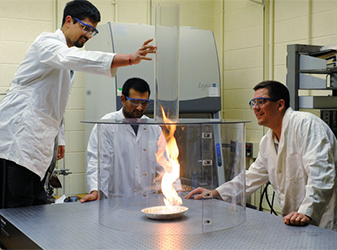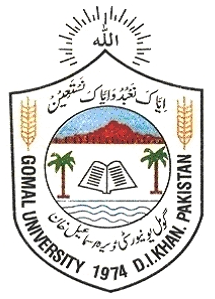Deportment of Entomology
Introduction of Deportment
Your Text Here. Your Text Here. Your Text Here. Your Text Here. Your Text Here. Your Text Here. Your Text Here. Your Text Here. Your Text Here. Your Text Here. Your Text Here. Your Text Here. Your Text Here. Your Text Here. Your Text Here. Your Text Here. Your Text Here. Your Text Here. Your Text Here. Your Text Here. Your Text Here. Your Text Here. Your Text Here. Your Text Here. Your Text Here. Your Text Here. Your Text Here. Your Text Here. Your Text Here. Your Text Here. Your Text Here. Your Text Here. Your Text Here. Your Text Here. Your Text Here. Your Text Here. Your Text Here. Your Text Here. Your Text Here. Your Text Here. Your Text Here. Your Text Here. Your Text Here. Your Text Here. Your Text Here. Your Text Here. Your Text Here. Your Text Here. Your Text Here. Your Text Here. Your Text Here. Your Text Here. Your Text Here. Your Text Here. Your Text Here. Your Text Here. Your Text Here. Your Text Here. Your Text Here. Your Text Here. Your Text Here. Your Text Here. Your Text Here. Your Text Here. Your Text Here. Your Text Here. Your Text Here. Your Text Here. Your Text Here. Your Text Here. Your Text Here. Your Text Here. Your Text Here. Your Text Here. Your Text Here. Your Text Here. Your Text Here. Your Text Here. Your Text Here. Your Text Here. Your Text Here. Your Text Here. Your Text Here. Your Text Here.
Mission
- Your Text Here. Your Text Here. Your Text Here. Your Text Here. Your Text Here. Your Text Here. Your Text Here. Your Text Here. Your Text Here. Your Text Here.
- Your Text Here. Your Text Here. Your Text Here. Your Text Here. Your Text Here. Your Text Here. Your Text Here. Your Text Here. Your Text Here. Your Text Here.
- Your Text Here. Your Text Here. Your Text Here. Your Text Here. Your Text Here. Your Text Here. Your Text Here. Your Text Here. Your Text Here. Your Text Here.
- Your Text Here. Your Text Here. Your Text Here. Your Text Here. Your Text Here. Your Text Here. Your Text Here. Your Text Here. Your Text Here. Your Text Here.
- Your Text Here. Your Text Here. Your Text Here. Your Text Here. Your Text Here. Your Text Here. Your Text Here. Your Text Here. Your Text Here. Your Text Here.
Objective
- Your Text Here. Your Text Here. Your Text Here. Your Text Here. Your Text Here. Your Text Here. Your Text Here. Your Text Here. Your Text Here. Your Text Here.
- Your Text Here. Your Text Here. Your Text Here. Your Text Here. Your Text Here. Your Text Here. Your Text Here. Your Text Here. Your Text Here. Your Text Here.
- Your Text Here. Your Text Here. Your Text Here. Your Text Here. Your Text Here. Your Text Here. Your Text Here. Your Text Here. Your Text Here. Your Text Here.
- Your Text Here. Your Text Here. Your Text Here. Your Text Here. Your Text Here. Your Text Here. Your Text Here. Your Text Here. Your Text Here. Your Text Here.
- Your Text Here. Your Text Here. Your Text Here. Your Text Here. Your Text Here. Your Text Here. Your Text Here. Your Text Here. Your Text Here. Your Text Here.
- Your Text Here. Your Text Here. Your Text Here. Your Text Here. Your Text Here. Your Text Here. Your Text Here. Your Text Here. Your Text Here. Your Text Here.
Programs

B. S. Physics
Bachelor of Science in Physics Staff Members Research & Publications Programs & Courses Introduction The aim of the BS Physics program is to equip students with essential skills necessary for
Deportments

Institute of Computer & Information Technology
Institute of Computing and Information Technology (ICIT) Staff Members Research & Publications Programs & Courses Introduction of Deportment The Institute of Computing and Information Technology (ICIT), since its inception in

Department of Mathematics
Deportment of Mathematics Staff Members Research & Publications Programs & Courses Introduction of Deportment Your Text Here. Your Text Here. Your Text Here. Your Text Here. Your Text Here. Your

Department of Statistics
Deportment of Statistics Staff Members Research & Publications Programs & Courses Introduction of Deportment Your Text Here. Your Text Here. Your Text Here. Your Text Here. Your Text Here. Your

Department of Chemistry
Deportment of chemistry Staff Members Research & Publications Programs & Courses Introduction of Deportment Your Text Here. Your Text Here. Your Text Here. Your Text Here. Your Text Here. Your

Department of Biology
Deportment of Biology Staff Members Research & Publications Programs & Courses Introduction of Deportment Your Text Here. Your Text Here. Your Text Here. Your Text Here. Your Text Here. Your

Department of Physics
Deportment of Physics & Electronic Science Staff Members Research & Publications Programs & Courses Introduction of Deportment Your Text Here. Your Text Here. Your Text Here. Your Text Here. Your
Deportments

Institute of Computer & Information Technology
Institute of Computing and Information Technology (ICIT) Staff Members Research & Publications Programs & Courses Introduction of Deportment The Institute of Computing and Information Technology (ICIT), since its inception in

Department of Mathematics
Deportment of Mathematics Staff Members Research & Publications Programs & Courses Introduction of Deportment Your Text Here. Your Text Here. Your Text Here. Your Text Here. Your Text Here. Your

Department of Statistics
Deportment of Statistics Staff Members Research & Publications Programs & Courses Introduction of Deportment Your Text Here. Your Text Here. Your Text Here. Your Text Here. Your Text Here. Your

Department of Chemistry
Deportment of chemistry Staff Members Research & Publications Programs & Courses Introduction of Deportment Your Text Here. Your Text Here. Your Text Here. Your Text Here. Your Text Here. Your

Department of Biology
Deportment of Biology Staff Members Research & Publications Programs & Courses Introduction of Deportment Your Text Here. Your Text Here. Your Text Here. Your Text Here. Your Text Here. Your

Department of Physics
Deportment of Physics & Electronic Science Staff Members Research & Publications Programs & Courses Introduction of Deportment Your Text Here. Your Text Here. Your Text Here. Your Text Here. Your



